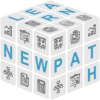As you can imagine, it is not always easy to stay healthy when you learn. Studying, student jobs and social life can throw your lifestyle off balance and affect your health.
Nevertheless, even though learning can seem hectic at times… you must never forget to take care of your health. In addition to avoiding illness, staying in shape and eating a balanced diet can help you improve your productivity and, as a result, study better.
And as we’ll explain below, following a healthy lifestyle doesn’t necessarily mean it will cost you more (in fact, it may even save you money).
As your learning journey just begun, we thought it would be interesting to give you some advice on how to have a learning year synonymous with balance and good health.
Alcohol: Be reasonable!
Recent statistics on the subject show that more and more young adults are choosing not to drink alcohol and that this is partly due to a better knowledge of the effects of alcohol on health.
However, these studies also show that young people who drink alcohol tend to drink more extremely and therefore consume more than other age groups.
Even if someone is planning to cut down on alcohol consumption, drinking alcoholic beverages every night is generally an unhealthy practice.
When it comes to alcohol, there are no so-called ‘safe’ limits. But drinking alcohol in reasonable doses will reduce the risk of impact on your health. (Not forgetting that reducing your alcohol consumption also saves you money, especially if you have a learning budget).
It is recommended not to drink more than an average of 2 units of alcohol per day for women and 3 units of alcohol for men.
If you drink a lot of alcohol during an evening, please make sure that your body can recover. In particular, don’t drink alcohol for at least 48 hours.
Sleep: Adopt a regular rhythm
For many students, irregular and intense working hours are part of their life style. Classes may start at an early or late hour. It is also common for students to decide to take a student job to supplement their income. Some weeks may require intense hours of work, especially as test approach. Not to mention student social life, which can be particularly intense.
Maintaining good sleep habits (or ‘sleep hygiene’) has several essential health benefits. It will help you focus better on your study and work. Sleeping properly is also important to keep your immune system functioning normally. Over the long term, some studies suggest that following good sleep habits reduces the risk of diabetes and cardiovascular disease.
So, whenever possible, try to follow these tips:
- Sleep between 7 and 9 hours a night
- Try to get a regular sleep pattern. Avoid going to bed or waking up too late.
- Avoid eating just before going to bed, ideally, it is advisable to eat 2-3 hours before going to sleep.
- Try not to use your phone, tablet or computer after you go to bed.
- Do not hesitate to use earplugs or a sleep mask.
- Consume limited amounts of caffeine or alcohol.
- If you are overworked, make a list of what you need to do the next day before going to bed, it will help you avoid going to bed stressed out.
Whenever possible, we advise you to allow yourself one full day of rest per week. This will give you the opportunity to relax and ultimately increase your productivity.
Sport: Give yourself time to stay active
It is not always easy to find the time to practice a sport activity, especially when you have busy weeks. Yet, regular exercise not only helps you stay healthy and alert, it can also increase your productivity. That’s why, even if you’re in a period of intense study, don’t stop exercising.
The WHO recommends at least 2.5 hours of moderate aerobic activity per week (such as swimming, brisk walking or cycling); or 75 minutes of aerobic activity (jogging, team sports such as soccer or basketball) per week. In addition, it is also advisable to do muscle strengthening two or more times a week.
You can thus divide these hours during the week into 30 minutes of sport per week, with two days off. Even during review or test periods, try to give yourself the time you need to practice your physical activity.
Stay healthy
If you are slightly ill, your performance in your studies will be affected. This is why, you should react immediately as soon as you feel/develop symptoms.
It is important to keep in mind that living with people can encourage the sharing of bacteria. As mentioned earlier, getting a balanced sleep, drinking alcohol in moderation and practicing sports regularly will help strengthen your immune system.
Nevertheless, you should not underestimate the importance of an excellent hygiene. Indeed, it is crucial to leave in a clean environment. These precautions will reduce the risk of infections. Living in a tidy space will also help to improve your ability to concentrate.
Of course, it is almost impossible to avoid bacteria and colds. Drink plenty of water and rest for few days, if you get sick. If you notice any unusual symptoms or if they get worse, see your doctor.
Eating well
Regularity and diversity should be the watchwords of your meals. Dividing your revisions between breakfast, lunch, snack and dinner will help you avoid putting your body to too much strain. Take advantage of these moments during the day to really relax, especially by cooking or sharing your meal with your family or friends.
You should also know that your brain is very greedy: it needs about forty substances to function properly. Your meals must therefore be varied: pasta, but also peas, cherries, apples, peaches and other slow carbohydrates will be the fuel for your revisions.
A balanced diet should be favored at the time of revisions. Eat fruit, vegetables, and drink lots of water… Avoid what is too heavy, too fatty, it prevents you from sleeping. On the contrary, avoid fast sugars during revision hours, they tend to make you sleepy rather than give you energy
To boost your memory, sardines, anchovies and oily fish, eggs, shrimps, artichokes, broccoli, almonds are all foods strong in choline, a substance that facilitates memory, and contain many vitamins important for your brain. Chocolate, if consumed in moderation, is also excellent for revision as it facilitates concentration and attention.
Finally, after the meal, remember to take a piece of gum. Indeed, several studies have shown that chewing stimulates memory and reduces stress.
Finally, certain foods, substances or practices should be banned from your revisions. Saturated fats, for example, for which digestion requires a lot of energy from the body, and which tend to impede the circulation of blood and therefore oxygen, are very bad for the brain. In addition, they increase the risk of stroke.
Also avoid coffee and tea, which are stress factors: bad for concentration and memory. If you have to drink a lot, both during revision time and in normal times, avoid alcohol of course, as it acts directly on the nervous system.
Make a schedule, starting with priorities
These priorities are what you should put first in your schedule. And yes learning time is not enough. To make sure that your “big rocks” are in the pot, you need to plan your whole week’s schedule, from Monday to Sunday, from wake-up time to bedtime… This schedule must indicate your courses, but also your personal work time, extra-curricular activities, transportation, regular leisure activities…
Use the tool that suits you: a large cardboard that you put on the wall in front of your desk, a classic paper agenda, or a free calendar software. You can differentiate your activities by using different colors for personal work, sports, classes, parties…
Making a schedule, what’s the point?
- The planning allows you to give a right place to each activity: if your planning is detailed enough (half an hour by half an hour), you can put “the big stones” but also mix them with small activities to balance your life: half an hour to read a book your like, an hour of jogging on Saturday, movies on Friday after school… Finally, you realize that you can do a lot of things.
- Planning creates automatisms: it is easier to do an activity that is regularly scheduled in our schedule than one that is not scheduled. For learning activities, this is even truer; our brain acquires “reflexes”: I get into the habit of doing German every lunchtime, rereading my classes in the late afternoon, doing literary research on Sunday evenings… so I have less trouble getting down to work.
- The schedule helps to organize your life and frees your mind. Postponing and acting without organization – and therefore in a hurry – is a source of guilt and stress. Whereas knowing that everything can be done in its own time is soothing. And it makes it possible to devote oneself fully to each thing in the present… and then move on to the next. For an hour, I concentrate intensely on library work (without forgetting to turn off my laptop). Then I enjoy my hour of relaxation by having a drink.

